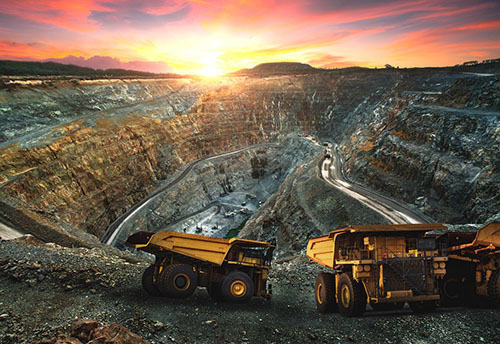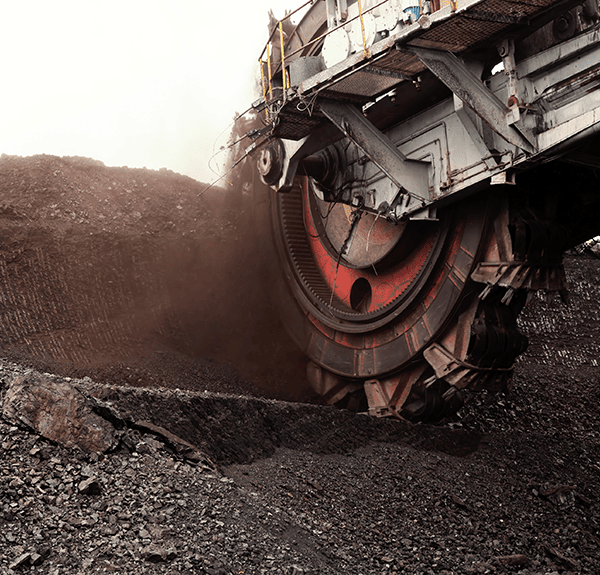Colombia’s government is looking to pass a new mining law that would prohibit the exploration of new coal mines, while also opening the door for the expropriation of current mining operations.
The proposed bill was made public this week but has yet to be sent to Congress for approval.
Under the proposed changes, article 23 of the new mining law would impose a “prohibition of contracting for the exploration and exploitation of thermal coal” and further states that “new contracts will not be awarded for the exploration and exploitation of thermal coal”.
The article doesn’t provide a timeline for the restrictions, an indication that this would likely be a permanent ban if passed. The text does say that the prohibition will not apply to titles or contracts granted prior to this new law.
President Gustavo Petro took office in August 2022 after a campaign strongly marked by promises of decarbonization. Since coming to power, his government has not signed any new coal contracts.
The proposed bill also allows for the expropriation of mining assets in certain circumstances, both coal and other types of minerals.
The 113-page draft, created with the objective of “advancing the energy transition process and the decarbonization of Colombia,” makes it clear that the minerals are property of the State and that the Government “has the sovereign right to manage, plan and decide on their use.” In its article 69, the bill grants the Government the power to declare certain mining projects or contracts of public utility.
The proposed regulations also state that mining assets susceptible to being expropriated by the State would have to meet a series of requirements, among them being “intended for the reindustrialization of the country, the energy transition, agricultural development and/or for public infrastructure (…) and generate direct qualified and unskilled jobs in decent conditions.”
Colombia exported 56.23 mt of thermal coal in 2023 compared to 53.72 mt the year prior. Drummond Ltd, the major Colombian thermal coal miner Drummond, produced 29.56 mt last year, up 7% from 27.60 mt in 2022, and exported 27.04 mt, down 3% from 27.75 mt previously; while Cerrejon’s mine (owned by Glencore) produced 22.0 mt of thermal coal in 2023, up 12% from 19.7 mt in 2022.
© 2024 Dow Jones Energy Limited. All rights reserved.
The shadow of nationalisation of coal continues to haunt the mining sector in Colombia and many fear the spectre could soon take on physical form, as the government looks to approve reforms by the end of the year.
Already reeling from last year’s tax reforms that added significant costs to their bottom line, the industry is worried Colombia is now moving towards a path to national ownership with new mining legislation due to be approved at the end of this year that would create a state mining company called Ecominerales.
“The mining law could present obstacles to the development of the coal industry. There is so much uncertainty in this regard that many of us don’t dare to invest in our own mines,” a Colombian mining source told McCloskey.
Many in the industry fear that under the new law and the national company, almost total control of the Colombian mining industry will be handed over to the National Mining Agency (ANM).
“We fear it. They have already said with this new legislation, sovereignty would be given to the State so that it can use below ground resources to guarantee what they call energy transition, and so it will be the State which plans the development of the sector,” the source said.
Under the guise of energy transition, the new Minister of Mines and Energy, Andres Camacho said: “The Mining Law allows the country to prepare for the resources of the future. The regulatory framework is not prepared for the transition (…) The public must play a role, we have to recover some function of the public within that control.”
Camacho was speaking at a conference of the National Federation of Coal Producers (FenalCarbon) in Barranquilla last week. He took over as minister of mines and energy just two months ago.
Unlike his predecessor, Irene Velez, Camacho has preferred to adopt a low profile so as not to generate the same level controversy that ended up pushing Velez out of office.
Camacho has adopted language in his narrative that seems more conciliatory to the sector, such as “We are not looking for a divorce, we are looking for a new stage,” and “It’s in our interest, as a national government, to work jointly with the coal sector to identify the necessary alternatives.”
But many in Colombia believe that he privately follows the same anti-coal path initiated by Velez and imposed by President Gustavo Petro.
During his election campaign, Petro told McCloskey that “from day one, we will stop oil exploration, not exploitation. The old coffee country was left behind and unfortunately passed to oil and coal. And that is unsustainable.”
At the time, he touted plans for the decarbonization of Colombia in 12 years, replacing the billions in revenue from coal and oil with tourism. Those sums didn’t really add up, but in the 14 months he has been in office, Petro has opted to milk the industry through tax reforms.
Those tax increases are suffocating for the coal sector, especially as prices have eased, and the new law and Ecominerales could be the next steps towards nationalisation.
“After suffocating us with their ‘reforms’, it will be easier to control the entire industry,” said a coal producer.
Coal mining royalties contribute $1.84bn to the national exchequer, with oil and gas providing another $7.10bn in royalties.
“(With Camacho) it’s more of the same, but he knows how to stay quiet in the face of public opinion and (Velez) didn’t know how to stop talking. In the end, they have the same plan – to hinder mining,” another mining source said.
McCloskey tried to ask Camacho about his intentions for the new mining law and Ecominerals but could not get a response.
The fall in thermal prices in recent months has added more anxiety to the coal sector. Colombian export prices dropped to $82.00/t FOB, basis 6,000 kc NAR, at the start of June after a precipitous drop from a record high of $387.50/t FOB, same basis, in July 2022.
“With the enormous tax burden imposed with the new reform, Colombian coal is currently less competitive,” said Carlos Cante, president of Fenalcarbon, at the Barranquilla conference.
He warned the mining law could be a further obstacle to the development of the coal industry in Colombia, and its ability to respond to the kinds of events that have rattled coal markets in the past 18 months, and point to a long-term future for coal as an ongoing source of reliable energy and in steel making.
“As long as we can work and continue operating the mines in Cesar and La Guajira, Colombia can continue being a reliable supplier to 2050 without any problem. Demand will continue into 2050 for thermal, and beyond for met coal and coke,” Cante said.
© 2024 Dow Jones Energy Limited. All rights reserved.

The world’s premier coal and energy service provides news, analysis, price, and fundamental critical intelligence on seaborne thermal coal markets and competing fuels. This service is supported by industry-leading proprietary coal benchmark prices. McCloskey Energy Markets provides the most time-sensitive and reliable news, analysis and price intelligence service available in the market today.
Key deliverables include News, Market Round-Ups, McCloskey Coal & Energy Report, price and fundamental data files, and key price markers. View details here.
Find answers to the industry’s most pressing questions with our comprehensive McCloskey Energy Research service integrating short- and long-term global thermal coal outlooks. Weekly, monthly, and quarterly reports with a 25-year forecast, plus supporting analysis for global thermal coal supply/demand, prices, costs curves and freight. You can assess market balances and identify trends allowing you to optimize business decisions.
Key deliverables include Thermal Coal Market Briefing, Thermal Coal Supply, Demand and Price Forecasts, US Coal Market Briefing, Country Coal Profiles, key price outlooks for thermal coal, LNG supply demand, petcoke prices, freight rates and more, as well as regional outlooks for South Africa, Europe, China, Australia, and more. View details here.


McCloskey Steel Raw Materials coverage provides daily news content and strategic monthly analysis and forecasts of metallurgical coal, iron ore, ferrous scrap and ferro-alloys and their associated ores, such as manganese oxide. Our coverage allows coal and iron ore producers, steelmakers, traders, infrastructure companies, governments and industry participants to stay informed about the most critical information affecting steel raw materials markets.
Our markets module provides daily price reporting with a focus on market-moving news, supported by strong fundamental data. Our research module has strategic insight and long-term outlooks based on our unique and proprietary databases.
Key deliverables include News, Market Round-Ups, Steel Raw Materials daily and weekly reports, Metallurgical Coal Weekly Research Snapshot, market briefings, iron ore country profiles, steel capacity data, price and fundamental data files, and key price markers. View details here.